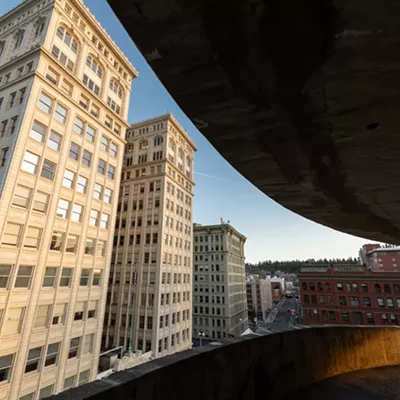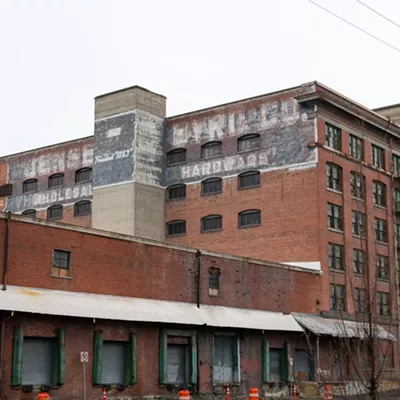Oh, hey guys! Did you hear we might possibly be getting an Anthropologie in Spokane?! Oh, and Urban Outfitters, too? Word is, that's why River Park Square wants to annex 17 feet of Wall Street!
These rumors have been passing mouth-to-ear since early fall, but now that they've made their way to social media, well, the Facebooks are atwitter with people thinking they've gone to heaven and others worrying we're heading for national retailer hell.
The reaction is feverish, but chasing whales is nothing new. For at least a year, the big property players in town have been trying to carve out the big swaths of space national retailers want. And for years before that, Greater Spokane Incorporated courted home-run relocations of big companies, to massively mixed results.
Things have begun to change at GSI; they recently hired an entrepreneurship program director to focus on building a local ecosystem for homegrown ideas. It's a step in the right direction, but it means Spokane is only beginning to catch up to where other cities already are.
The city of Tacoma and the Tacoma-Pierce County Chamber of Commerce have run a joint program called Spaceworks to incubate local creative entrepreneurship since 2010. It's structurally simple — teaching creative people basic business skills and offering six months free rent — but has been crazy successful, creating more businesses and jobs than any of the chamber's other ventures over the same period, according to project staffers.
Spaceworks is just one of dozens of similar programs worldwide where local communities recognize the massive development potential of nurturing homegrown creativity.
Notice I said "nurturing," not "bankrolling."
Great ideas rarely require massive amounts of cash to start up. What they do need is space and time to grow. Leases are one of the biggest start-up costs for any business. Taking that cost away, at least for a little while, gives an idea and its business owner tremendous breathing room.
One of the smartest dudes on this subject is an Aussie named Marcus Westbury, who returned in 2008 to the bombed-out central district of his hometown — a very Spokane-like place called Newcastle — after a rockstar-ish career as a festival director.
Walking around Newcastle and finding more than 100 vacant storefronts, Westbury had an epiphany. "Cities are designed for people with capital," he said in a now-famous 2013 speech. "They're designed for that top 10 percent of people who have the money to do stuff." He wondered: "What happens if you allow 60 percent, 80 percent, 100 percent of people to start things?"
The answer, for Newcastle, was complete transformation.
Westbury created a structure of simple agreements where property owners gave their spaces over to creative people trying new ideas for free, as long as there wasn't a better offer on the table.
Change came quickly. In 2011, citing Westbury's work, Lonely Planet named Newcastle a Top 10 world city for its vibrant cultural scene.
By 2013, retail vacancies in Newcastle had dropped 50 percent citywide and 90 percent in the places Westbury's nonprofit worked most intensely. Those neighborhoods, having been filled with interesting, creative exhibitions, projects and businesses, became magnets for development.
The point is this: There's a natural human inclination to swing for the fences, and while it's totally OK for our big property owners and our chamber to try to hit home runs, we can't let that be our whole game plan, partially because home runs — whether in big retail, big development or big business — are painfully slow in coming.
"Deferring the future and waiting for the big stuff to happen at the expense of supporting all the little stuff you can do now," Westbury concludes, "to me, is a fundamental mistake."
And one of the biggest ways we get cities wrong. ♦






















